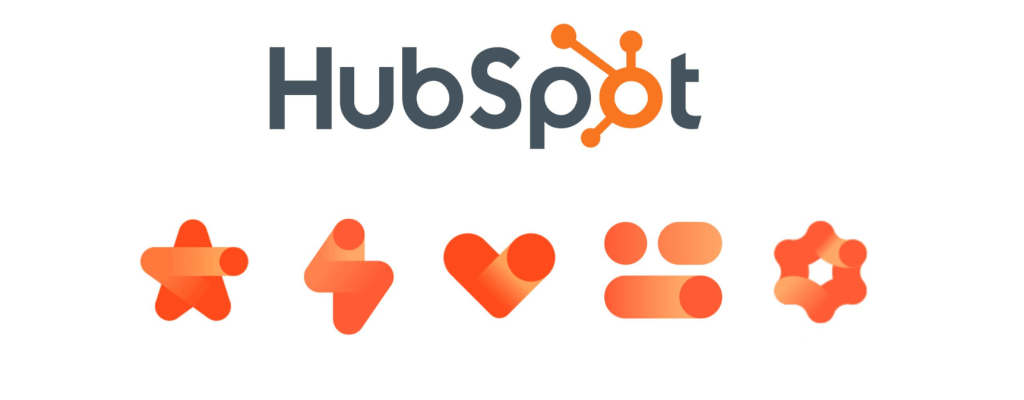Proper marketing and sales software can make all the difference in the fast-paced digital business world. That’s where HubSpot comes in. With a suite of specialized Hubs combining powerful inbound marketing strategies with cutting-edge sales and service tools, HubSpot gives companies a centralized engine to drive growth. Whether you’re looking for marketing software, sales software, or both, HubSpot has you covered. W
We’ll explore the depth of the Marketing & Sales Hubs, highlighting their features and their potential to unify all your departments. If you’re searching for a CRM encompassing marketing, sales, service, and web design, this article will demonstrate why these HubSpot Hubs stand out as the dynamic duo for your business success.

Understanding HubSpot Marketing & Sales Hubs
With its powerful tools, HubSpot has revolutionized how companies approach sales, marketing, and service. At the core of HubSpot’s offerings are its various Hubs — Marketing Hub, Sales Hub, Service Hub, CMS Hub, and the recently added Operations Hub. So, what exactly are HubSpot Hubs?

They are integrated software tools designed to help companies attract, engage, and delight their customers. Each Hub serves a unique purpose, but together, they work to create a centralized platform that streamlines workflows, data sharing, and customer interactions.
Learn more about each specific Hub:
- Marketing Hub allows users to create and optimize website content, manage social media campaigns, generate leads, track and analyze performance, and automate marketing processes. One of the critical strengths of HubSpot Marketing Hub lies in its user-friendly interface and intuitive workflows. Marketers of all skill levels can easily navigate the platform, allowing for quick adoption and seamless collaboration across teams.
- Sales Hub is specifically designed for sales teams, providing them with tools to manage their leads, deals, and pipelines. This Hub also offers email tracking, allowing users to monitor email opens, clicks, and responses, enabling personalized and timely follow-ups.
- Service Hub is tailored for customer service teams, enabling them to provide quick and efficient customer support across multiple channels.
- CMS Hub is a powerful content management system designed to help companies easily create and manage their website content. It offers a range of features and tools to streamline the content creation process, from drag-and-drop page editing to built-in SEO recommendations.
- Launched in 2020, Operations Hub introduced the RevOps concept. It is designed to provide companies with the tools to automate their processes, streamline data flows, and connect their apps and systems. With the Operations Hub, companies can take advantage of powerful automation features that can help them save time, reduce errors, and improve efficiency.
To see a full list of features for all Hubs, check HubSpot’s Product & Services Catalog.
Marketing Hub
One of the primary features of the HubSpot Marketing Hub is its focus on inbound marketing strategies. This means the platform is designed to attract potential customers to your company through content creation, social media, email marketing, and other tactics that aim to educate and inform rather than directly sell. The Marketing Hub includes lead nurturing, landing pages, forms, and email marketing automation to help you engage with your audience and move them down the sales funnel.
The HubSpot Marketing Hub includes several notable features, including:
- Marketing automation allows you to automate your marketing campaigns by creating email workflows, lead scoring, and segmentation.
- Content creation and management with a content management system (CMS) that allows you to create, manage, and publish content for your website.
- Social media management includes tools for managing and publishing content and monitoring social media activity.
- SEO optimization includes features for optimizing your website and content for search engines, including keyword research, on-page optimization, and content suggestions.
- Landing page creation includes a builder that allows you to create and test landing pages for your marketing campaigns.
- A/B testing allows you to test and optimize your marketing campaigns through A/B testing, including email subject lines, content, and calls-to-action.
- Marketing analytics and reporting provides extensive analytics and reporting features, including funnel reporting, attribution reporting, and campaign performance tracking. Marketers can gain valuable insights into the effectiveness of their marketing efforts and make data-driven decisions.
While attracting leads through inbound marketing strategies, the Sales Hub focuses on managing and nurturing leads through sales.
Sales Hub
This Hub is designed to help sales teams manage their pipeline and close deals more efficiently.
Here are some of the features that make the HubSpot Sales Hub stand out:
- Contact management includes a more advanced contact management system that allows sales teams to track and manage interactions with leads and customers, assign tasks and follow-ups, and set reminders to ensure no opportunity falls through the cracks.
- Deal management includes a deal management feature that allows sales teams to track the progress of deals from start to finish, including the ability to create customized deal stages, assign deal owners, and set deal-specific tasks and activities.
- Sales analytics incorporates metrics on sales activities, such as the number of deals closed, the average deal size, and the sales team’s performance. This helps sales managers identify areas for improvement and optimize their sales processes.
- Sales sequences enable sales reps to send personalized emails to prospects at the right time. This helps keep prospects engaged and can increase the chances of closing a deal.
- Meeting scheduling uses a custom scheduling link, allowing prospects to book meetings directly on their calendars. This eliminates the back-and-forth emails trying to find a suitable time and helps speed up the sales process.
- E-signature includes a built-in e-signature tool that allows sales teams to send and track documents for signature directly within the HubSpot platform, eliminating manual paperwork and streamlining the sales process.
- Quotes allow sales teams to create and send customized quotes to prospects and customers, with the ability to track when the quote has been viewed and accepted.
Choose the HubSpot Sales Hub if your main focus is on sales since you already have a robust marketing strategy. We believe companies can benefit from both the Sales and Marketing Hubs. Both Hubs create a seamless sales and marketing pipeline. Choosing both Hubs ultimately fosters your company’s needs and goals.
Features Included in Both Hubs
Both marketing and sales software offer users access to various shared features. These are some key features included in both Hubs:
- Contact management (CRM) provides a centralized database to manage and organize contacts, allowing users to store and track customer information in one place.
- Email templates, including automated workflows and targeted messaging, send and track email campaigns. Users can also choose from various pre-built email templates or create their own to send professional-looking emails to customers and prospects.
- Reporting & analytics track and measure key performance metrics like website traffic, lead conversion rates, and email engagement to gain valuable insights into their marketing and sales efforts.
- Forms & landing pages capture leads and gather customer data.
- Live chat & conversational bots enable you to communicate with your customers in real-time via chatbots, live chat, and messaging.
- Mobile optimization ensures your website and content are optimized for mobile devices, providing a seamless user experience.
- Integration with other tools and platforms allows you to streamline your workflow and improve efficiency.
These are just a few features included in the Marketing and Sales Hub, providing robust tools and capabilities to help companies grow and succeed.
Which Hub(s) to Choose?

If your primary goal is generating and nurturing leads through the sales funnel, then the Marketing Hub should be the first choice. The Marketing Hub’s features, such as lead capture forms, email marketing, social media management, and SEO tools, are ideal for creating and implementing effective marketing campaigns. This Hub is also suitable for companies with a longer sales cycle where more engaging content educates audiences and builds trust.
On the other hand, Sales Hub is another great option when considering the Marketing Hub. Companies should choose the Sales Hub when they prioritize closing deals and converting leads into customers. The Sales Hub’s features, such as deal management, pipeline tracking, and email templates, are designed to streamline the sales process and help sales teams close more deals efficiently. This Hub is ideal for companies with a shorter sales cycle, focusing on converting leads into customers quickly.
Choosing Both Hubs
By combining the features of both Hubs, companies can seamlessly move leads from the marketing process to the sales process, ensuring a smooth transition and a higher chance of conversion. Marketing Hub provides valuable insights and data on lead behavior and engagement, which the sales team can use to personalize their approach and close more deals. Sales Hub, in turn, provides feedback to the marketing team on the quality of leads generated and helps them refine their strategy.
Marketing Hub & Sales Hub
Scenario 1: Your company primarily focuses on attracting and nurturing leads to generate new business.
Case: You have a robust content marketing strategy and want to easily create and manage blog posts, landing pages, and email campaigns. You also want to track and analyze the success of these campaigns to optimize future efforts. You land on Marketing Hub.
Scenario 2: Your company is focused on closing deals and converting leads into customers.
Case: You have a large sales team and want to streamline their processes and workflows to ensure that leads are contacted and moved through the sales funnel efficiently. You also want to track and analyze sales metrics to identify opportunities for improvement. You land on Sales Hub.
Scenario 3: Your company is focused on generating new leads and converting them into customers.
Case: You want a centralized platform for your marketing and sales teams to collaborate and communicate effectively. You also want to be able to track and analyze the entire customer journey, from initial lead generation to final sale, to identify opportunities for improvement and ensure a seamless customer experience. Additionally, having access to all the features of both the marketing and sales Hubs allows for a more comprehensive and holistic approach to customer acquisition and retention. You land on both Marketing and Sales Hubs.
Ready for a Demo?
Choosing the right Hub for your company can be daunting, but our team is here to simplify that decision. We guide you through the myriad of HubSpot options, ensuring you find the perfect match for your goals.
From consultation and implementation to training, our suite of HubSpot services ensures you maximize your platform’s potential. Our experts evaluate your objectives, budget, and timeframe to recommend the ideal Hub or combination for your business.
Whether your focus is on inbound marketing, sales automation, customer service, or a blend of all, we ensure your HubSpot journey is seamless and valuable.
Contact us today to learn more about how we can help you choose and implement the right HubSpot Hubs for your company.
